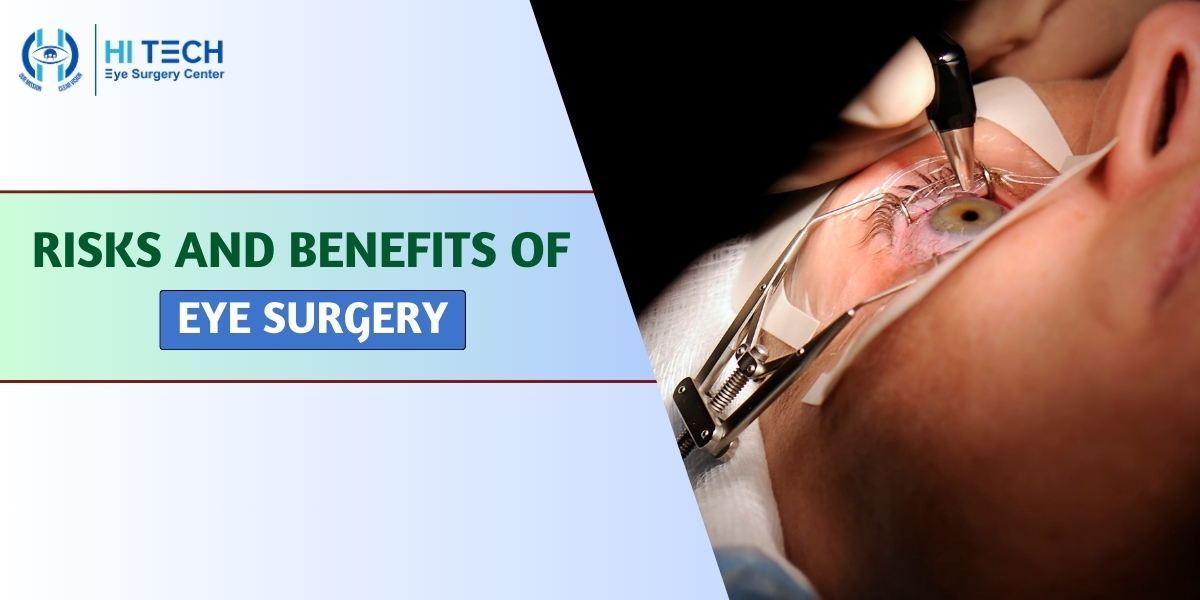Risks and Benefits of Eye Surgery
Eye surgery can significantly improve the quality of life for many individuals, offering the promise of clearer vision and the convenience of reduced dependence on corrective lenses. However, as with any surgical procedure, it’s crucial to understand both the benefits and risks involved. This guide aims to provide a comprehensive overview to help you make an informed decision.
Types of Eye Surgery
There are various types of eye surgeries, each addressing different vision problems. Some of the most common include:
- LASIK (Laser-Assisted In Situ Keratomileusis): This popular surgery corrects refractive errors like myopia, hyperopia, and astigmatism by reshaping the cornea.
- Cataract Surgery: Involves the removal of the eye’s natural lens, which has become cloudy due to cataracts, and replacing it with an artificial lens.
- Glaucoma Surgery: Aimed at reducing intraocular pressure to prevent damage to the optic nerve.
- Retinal Surgery: Includes procedures to repair retinal detachments, tears, or diabetic retinopathy.
- Corneal Transplant: Replaces damaged or diseased corneal tissue with healthy tissue from a donor.
Benefits of Eye Surgery
- Improved Vision: Most patients experience significant improvements in vision quality, often achieving 20/20 vision or better.
- Enhanced Quality of Life: Better vision can improve daily activities, driving, reading, and overall independence.
- Reduced Dependence on Corrective Lenses: Many people can reduce or eliminate their need for glasses or contact lenses.
- Long-Term Cost Savings: Over time, the reduction in costs for glasses, contact lenses, and related supplies can offset the expense of surgery.
Risks and Complications
Despite the high success rates, eye surgeries carry potential risks and complications, such as:
- Dry Eyes: Particularly common after LASIK, this can cause discomfort and visual disturbances.
- Infection: Any surgical procedure carries a risk of infection, which can be serious if not treated promptly.
- Under- or Over-Correction: Some patients may still need glasses or contact lenses after surgery.
- Vision Changes: Glare, halos, or double vision can occur, especially at night.
- Loss of Vision: Though rare, there’s a small risk of losing vision altogether.
Preparation and Recovery
Before undergoing eye surgery, a thorough evaluation by an ophthalmologist is essential. This includes:
- Comprehensive Eye Exam: To determine the health of your eyes and suitability for surgery.
- Discussion of Medical History: Including any medications or conditions that might affect the procedure or recovery.
- Informed Consent: Understanding the risks, benefits, and alternatives to surgery.
Post-surgery, recovery protocols vary depending on the type of surgery but generally include:
- Rest and Limited Activity: To allow proper healing.
- Follow-Up Appointments: Essential for monitoring progress and managing any complications.
- Medications: Often prescribed to prevent infection and reduce inflammation.
Find the Best Eye Surgery Center
Eye surgery can offer life-changing benefits, providing clearer vision and greater independence. However, it is not without risks. By understanding the potential outcomes, preparing adequately, and choosing a reputable surgeon, you can make an informed decision that aligns with your vision and health goals. Don’t be in the dark—take charge of your eye health with the knowledge and insights necessary to navigate the complexities of eye surgery. Visit the Hi Tech Eye Surgery Center For the Best Eye Surgery in Pune.


